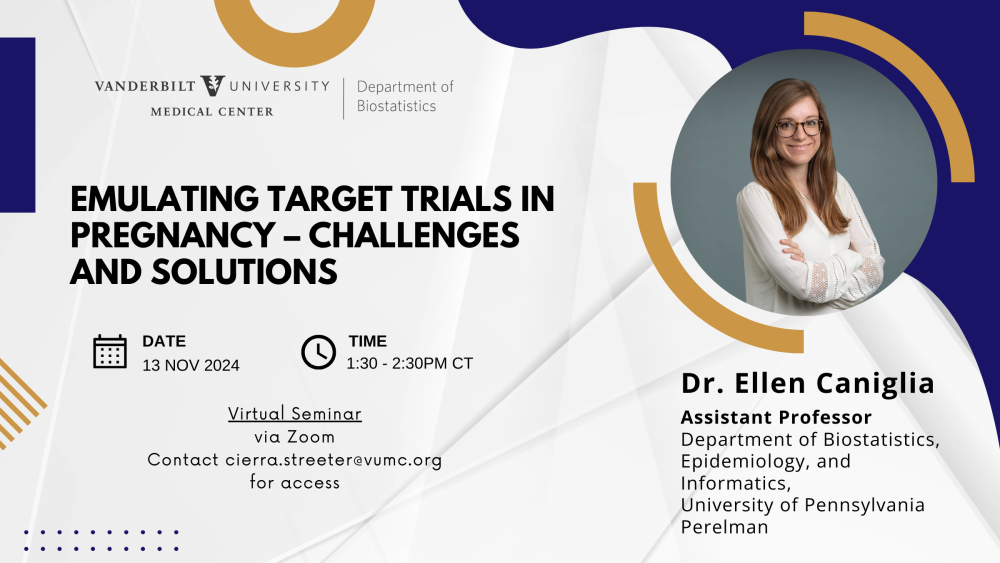
Abstract
Randomized trials are considered the gold standard for estimating causal effects. However, randomized clinical trials are often unethical, too expensive, or otherwise not feasible for specific research questions. These challenges are particularly relevant in the setting of evaluating the safety and effectiveness of treatments during pregnancy, where outcomes of interest are often rare and where ethical concerns have led to pregnant people historically being systematically excluded from clinical trials. When randomized trials are not feasible, observational data and appropriate methods are necessary to attempt to estimate causal effects. However, analyses of observational data are susceptible to confounding, selection bias, and misclassification bias. Target trial emulation—in which researchers specify the protocol of the hypothetical trial they would like to conduct (the target trial) and then attempt to emulate that target trial using observational analyses of existing data—is one approach to overcome these challenges. In this talk, I will present results from recently completed studies in which we used the target trial framework to overcome common challenges in observational analyses aimed at answering critical questions in the field of perinatal epidemiology.
Sign up to meet with Dr. Caniglia after the presentation here.
Dr. Caniglia is a perinatal and HIV epidemiologist who works to improve health outcomes among pregnant people and their children, and among people with HIV. Her work utilizes methods for causal inference to identify optimal treatment and prevention strategies in these populations. She received a K01 award from the Eunice Kennedy Shriver National Institute of Child Health and Human Development (NICHD) to estimate the effects of micronutrient supplementation strategies during pregnancy on adverse birth outcomes, to identify barriers to supplementation, and to pilot an intervention to provide supplementation at antenatal clinics in Botswana. Additional current and future projects include evaluating the effects of lifestyle, pharmaceutical, and health services interventions to improve neonatal and maternal outcomes and disparities in these outcomes. Dr. Caniglia collaborates broadly on projects related to causal inference; HIV; and reproductive, preinatal, and pediatric epidemiology. She is passionate about teaching the next generation of epidemiologists.